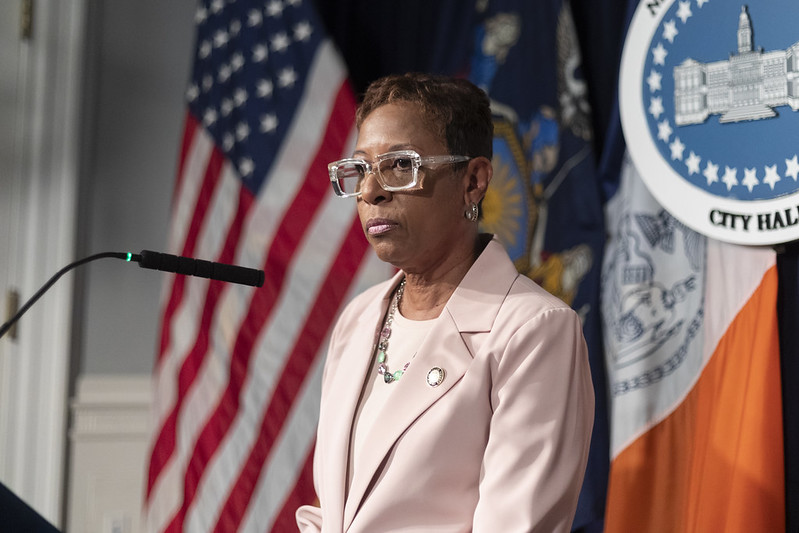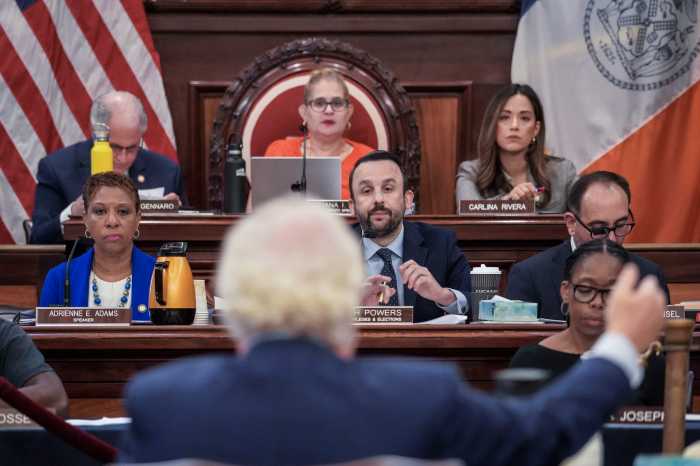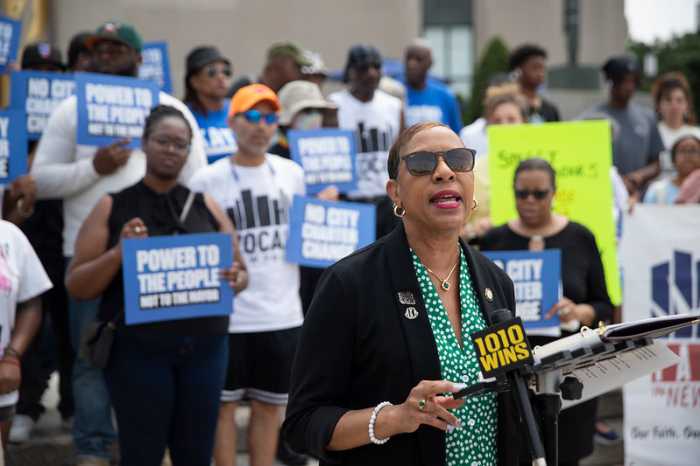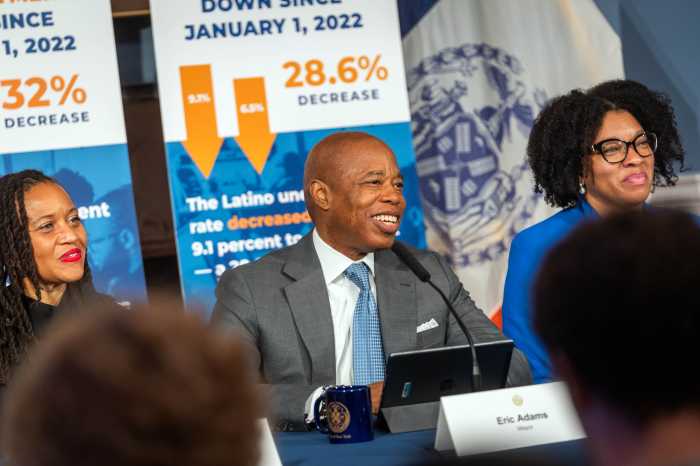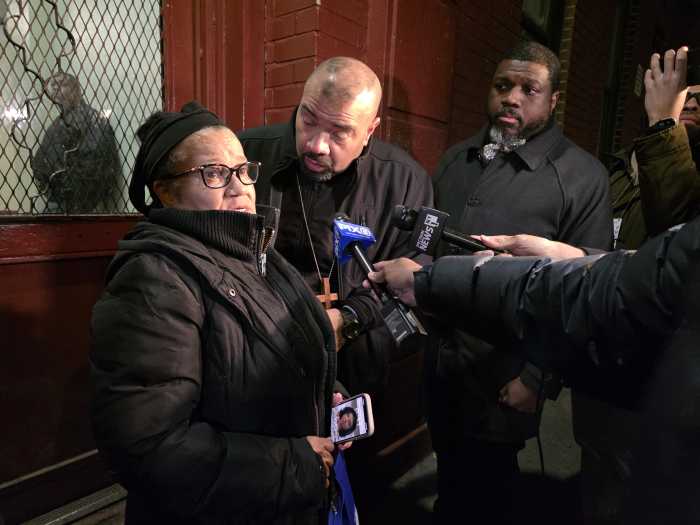City lawmakers want to take another look at Mayor Eric Adams’ changes to the city constitution with the passage of a bill to establish their own review panel on Wednesday, marking the latest chaptrer in the ongoing feud between the City Council and Hizzoner.
Following the passage of Mayor Adams’ ballot measures that will take some power away from the City Council last week, the legislature struck back on Wednesday by passing Speaker Adrienne Adams’ legislation to establish a Charter Revision Commission that could put the body’s own proposals on the ballot sometime in the next two years.
Amid the ongoing discord between the City Council and City Hall, the speaker and other council sponsors of the bill see it as a way to correct the five proposals advanced by the mayor’s hastily convened Charter Revision Commission earlier this year. Speaker Adams has criticized both the process by which the mayor’s commission drafted its proposals and the measures themselves, two of which will give City Hall a bigger hand in the lawmaking process.
Furthermore, the speaker charged on Nov. 13 that the mayor’s commission used misleading language for its proposals on the ballot that concealed their true impact from the voters.
“New Yorkers deserve more transparency and respect for democracy than was characterized by these proposals and the commission that created them,” the speaker said. “My bill to establish a Charter Revision Commission is aimed at restoring these democratic norms that were undermined last summer, as well as the trust in city government that has been harmed by the events of the past several months.”
The measure was approved by nearly every lawmaker in the 51-member body; Brooklyn Council Member Kalman Yeger, a conservative Democrat, was the only “no” vote, and Brooklyn Council Member Darlene Mealy (D) was absent from the vote. Yeger said he was voting against the bill because he does not believe the council should be “outsourcing” its work to a separate appointed body.
The legislation has enough support to override a potential Mayor Adams veto.
Under the legislation, the panel will consist of 17 members appointed by the speaker, mayor, public advocate, comptroller and each of the five borough presidents. Registered lobbyists will be barred from joining the commission, and those with business before the city need approval from the Conflicts of Interest Board.
The body will be charged with conducting an “extensive” public engagement campaign to solicit ideas from New Yorkers on how to improve city government. It would have eight months to submit its first draft of proposals for the 2025 election cycle or 20 months for the 2026 cycle, which stands in sharp contrast to the mayor’s commission completing its own work in just two months.
Queens Council Member James Gennaro, who fiercely criticized the mayor’s commission, said the speaker’s bill is an “opportunity to right a really horrendous wrong.”
While the mayor insisted his commission was formed in response to concerns from some community advocates over the council’s handling of issues, including public safety, it also worked to block City Council legislation that he disagreed with from going before New York voters. That bill would have subjected nearly two dozen more mayoral appointees to council approval.
The mayor was able to stop that legislation from apparing on the ballot because any proposals advanced by a mayoral charter commission take priority over those approved by the council under state law.
Adams could repeat the same move to block the proposals drafted by the speaker’s commission. City Hall did not immediately answer whether the mayor would establish another commission.
While the speaker called that scenario hypothetical, when asked about it on Wednesday, she blasted any attempt by the mayor to halt the council’s commission as “political weaponization.”
“It would be a great mistake for the mayor to attempt to repeat an abusive and undemocratic use of another Charter Revision Commission that is entirely self-serving,” the speaker said. “I think that he’ll face the consequence of the voters. The voters are advised now; they’re aware.”



